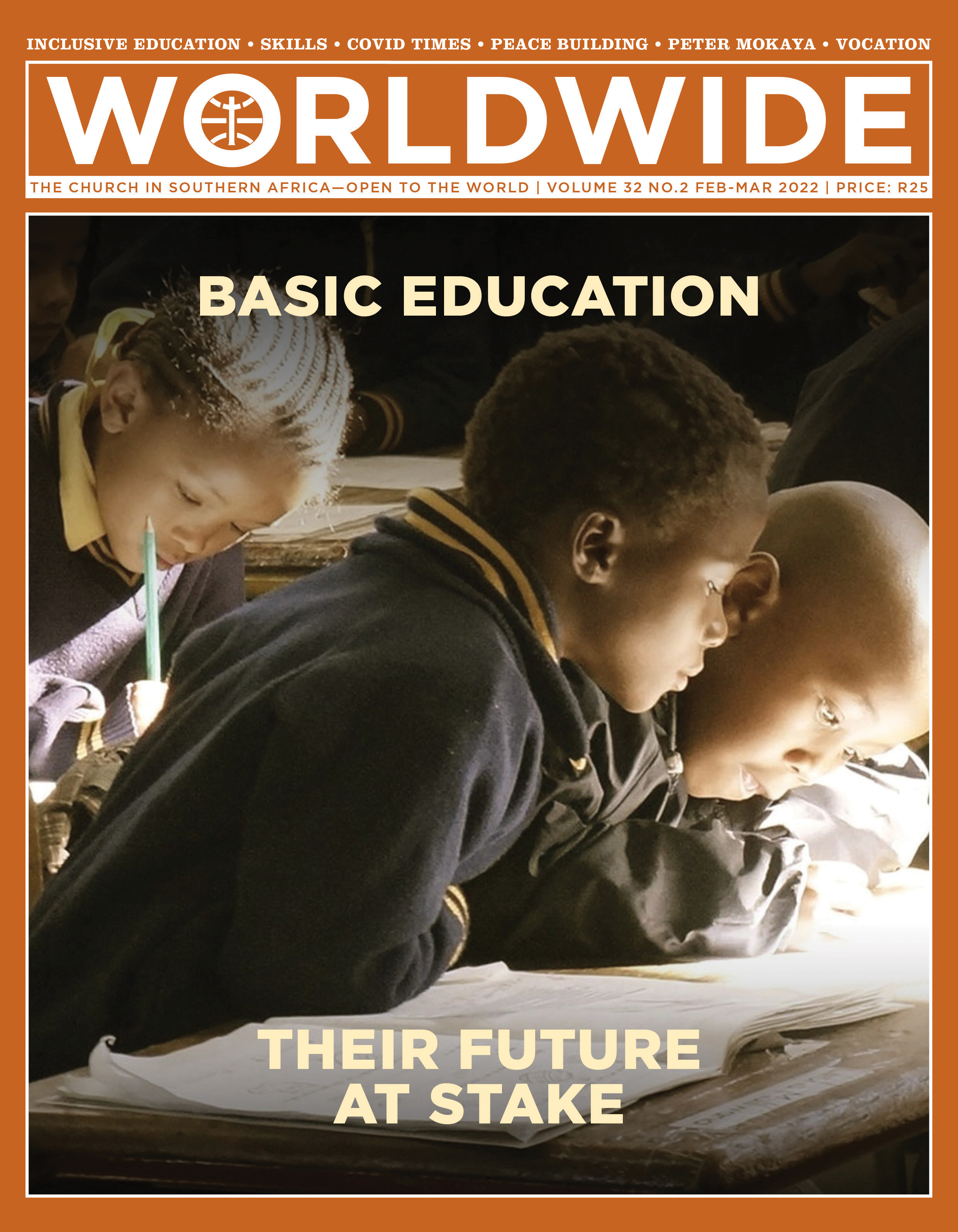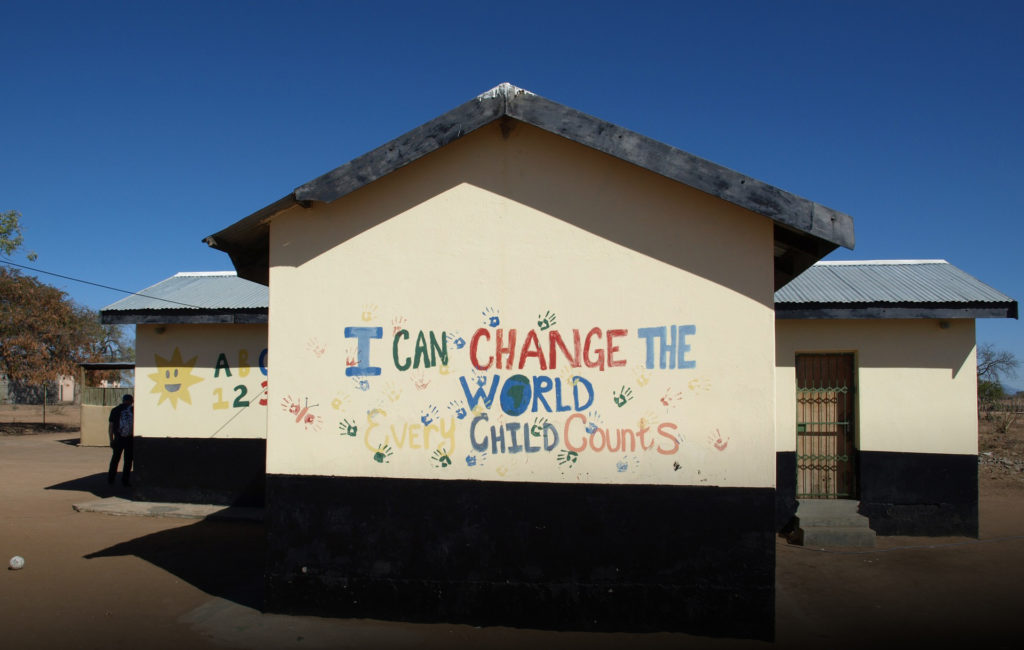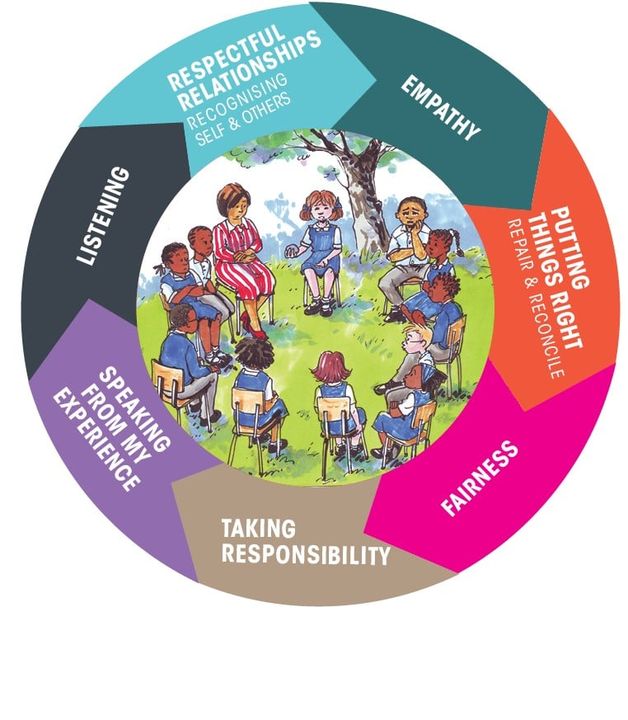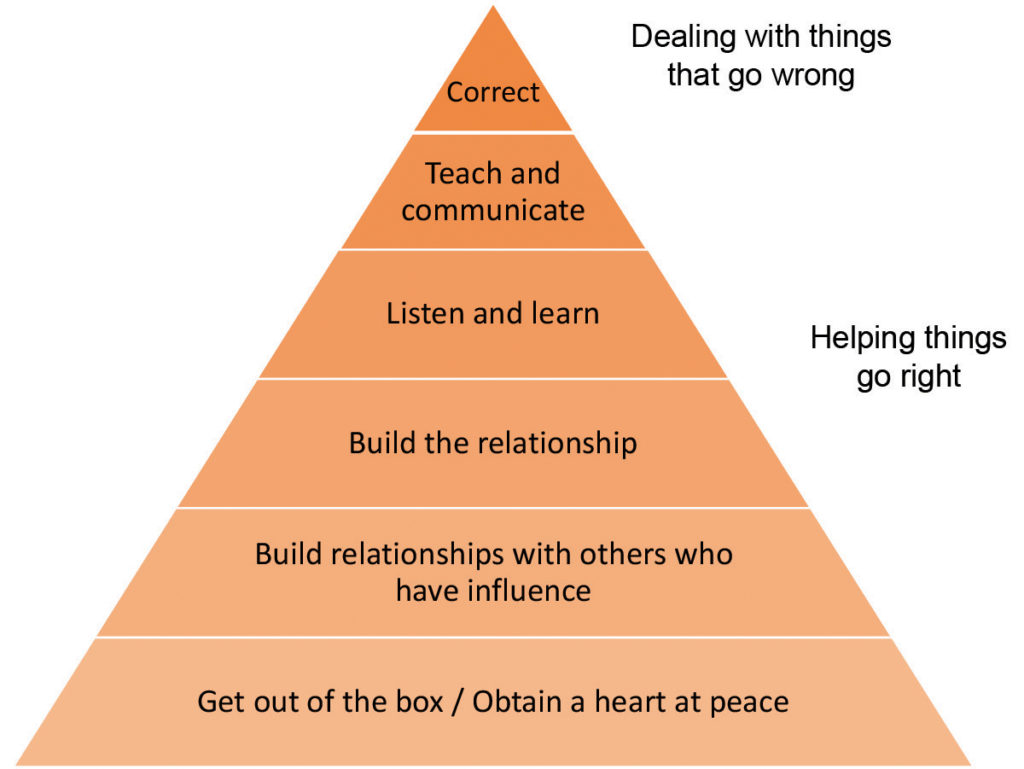
Basic Education Their Future At Stake
The front cover picture was certainly not taken during Covid times. We do not know its exact location, but it could be from any particular school in rural South Africa. What indeed the image of these children reflects is their eagerness for learning and doing it together. Their minds are surely full of dreams; their desires for a bright future cannot be frustrated. The task of offering them an inclusive and integral quality education can look gigantic, but each one’s contribution can make the miracle happen.
CHALLENGES • BUILDING PEACEFUL SCHOOLS

The Change, We Hope, Begins with Ourselves
The issue of school discipline is tackled through a programme based on Restorative Justice. It aims at developing positive relationships between teachers and learners
BY Anne Baker | Deputy Director of the Catholic Institute of Education (CIE), Johannesburg
THE VIOLENCE that took place in Kwa-Zulu Natal and Gauteng in June/July 2021 is indicative of the rage within our communities. This violence is in our homes, communities and therefore our schools, that are a part of the community in which they exist. Since 2013, the Catholic Institute of Education (CIE), under the auspices of the National Catholic Board of Education, has offered schools a Building Peaceful Schools programme.
This programme was developed when CIE staff encountered teacher concerns and distress as they ran Child Safeguarding Workshops for schools. Teachers felt that with the abolishment of corporal punishment they had no means of controlling children and that this had made life very difficult for them.
School discipline and even discipline in some homes has largely been punitive both physically and emotionally. CIE decided that schools needed a different way of relating to the children and indeed teachers to each other. To this end, CIE developed a programme based on Restorative Justice. The aim of this programme is to develop a culture of peace and justice in schools.
The programme is underpinned by the values illustrated below, all of which are central to the Catholic school ethos.
The programme is underpinned by Catholic Social Teaching and of these the following are closely linked to the programme:
- The dignity of the human person or the belief that every human being is entitled to be treated with respect.
- Community and the common good: as social beings we need community and should always act with the common good in mind.
- Rights and responsibilities: human dignity can be protected and a healthy community can be achieved only if human rights are protected. Corresponding to these rights are duties and responsibilities—to one another, to our families, and to the larger society.
- Promotion of peace: Catholic teaching promotes peace as a positive, action-oriented concept. There is a close relationship in Catholic teaching between peace and justice.

Discipline is largely about developing positive relationships between teachers and learners. Our programme is based on the consciousness ‘that the change we hope for in the schools we work with, begins with ourselves’ and training for the CIE staff and the schools began with guiding participants to ‘step inside’ the experiential activities, reflect on their experience and to take the knowledge gained out into their personal and professional lives. The work requires self-awareness and awareness of the stakeholders and the network.
The programme has three iterative workshops: peace building, conflict management and restorative practices.
Peace-building invites participants to think about their own and the group’s needs—trust-building, communication and respectful relationships and what each person can do to build peaceful schools. It introduced the ideas of CIRCLE-TIME and the PEACE-MAKING PYRAMID.
Mediating conflict
Conflict management deals with the reality of conflict and how it can be resolved. Participants once again made use of I-MESSAGES, the PEACE PYRAMID and CIRCLE-TIME activities with teachers being encouraged to use these tools in the classrooms.
Restorative Justice introduced new approaches to discipline and aimed to assist participants in exploring their own understanding of punitive, retributive discipline as opposed to the restorative approach. Facilitators introduced a way of mediating conflict between two parties with the help of a set of questions, listening skills, and I-messages. This required and enabled each person to take responsibility for their actions and helped participants to reach an agreement between themselves which they could all live up to.
Each year these three workshops were deepened and expanded and have dealt with presence, forgiveness, bullying, gender and xenophobia.
Restorative justice practices in schools aim to move schools from a punitive way of dealing with wrongdoers to assisting them to become accountable for their actions and enabling them to put things right. This strengthens relationships among members of school communities, helping schools to become places of peace that nurture learners and staff alike and build the social capital we need. Most disciplinary methods as we know them diminish both the offender and the one applying the discipline. So how can we enable conversations to take place differently and be restorative rather than retributive?

Process and tools
It is not a quick or easy approach, and involves a process and a lot of personal work to which some teachers respond well and learn to ask restorative questions when things go wrong. Another important part of the programme has been a climate survey carried out with certain grades in schools and the formation of learners in peer mediation. The climate survey assists schools to understand what is happening in their school and involves both the actual survey and conversations around climate surveys for learners and teachers to understand concerns and challenges which explain the findings.
Young people have responded extremely well to becoming Peer Mediators who aim to defuse low level conflict and to identify areas for concern in their particular school.
The pandemic has unfortunately had a serious impact on the CIE’s ability to continue with the programme as schools are under great pressure to catch up on teaching and learning. However, circle-time with teachers in schools where it is possible, have enabled teachers to share the pain and stress of COVID-19, as many have lost loved ones and suffered themselves, as well as the strain of keeping children safe and the protocols required for this.
CIE hopes to restart the programme this year as more than ever, peace is required in all facets of life. We also hope to assist schools to work more closely with parents to promote peace.
| Dates To Remember |
|
February 1 – Blessed Benedict Daswa 2 – World Day of Prayer for Consecrated Life 4 – International Day of Human Fraternity 6 – International Day of Zero Tolerance of Female Genital Mutilation 8 – International Day of Prayer and Awareness against Human Trafficking 11 – International Day of Women and Girls in Science 11 – World Day of the Sick 13 – World Radio Day 20 – World Day of Social Justice 21 – International Mother Language Day March 1 – Zero Discrimination Day 2 – Ash Wednesday 3 – World Wildlife Day 8 – International Women’s Day 15 – St Daniel Comboni’s Birthday 20 – International Day of Happiness 21 – International Day for the Elimination of Racial Discrimination 21 – SA Human Rights Day 22 – World Water Day 24 – World Tuberculosis Day 24 – International Day for the Right to the Truth concerning Gross Human Rights Violations and for the Dignity of Victims 25 – International Day of Remembrance of the Victims of Slavery and the Transatlantic Slave Trade |
